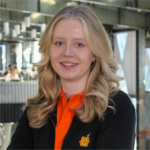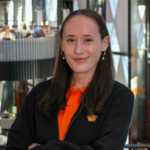Tip: Start typing in the input box for immediate search results.
-
England
United Kingdom

- 2.904.425 students in total
- 878 students from Luxembourg
- 20 members in the society
Information about the studies
Application
Applications to universities are handled by one centralised system called Universities and Colleges Admissions Service (UCAS). After registering on www.ucas.com, you may select up
to five universities that you wish to apply to. You will need to provide the following documents for your application: a personal statement, a transcript from your last two years of secondary school, the results from your IELTS test, and a letter of recommendation from one of your teachers.
Based on this information, your chosen universities will then decide whether or not to make you an offer. Usually these offers are conditional, meaning that you will have to get certain marks in your final year. This can be an overall average or marks in a specific subject. While top marks are essential, the personal statement gives you the opportunity to elaborate on additional skills you have and explain why you want to study for your chosen degree. It is important that your personal statement is well written and highlights your strengths. Make sure that there are no grammar mistakes in it by asking one of your English teachers to proofread it. Even a single mistake could be seen as a sign of carelessness and lack of motivation.
Furthermore, you should start writing your personal statement as early as possible as competition for university places is fierce and writing a convincing personal statement takes a lot of time and effort. You can find many useful guides to help you get
started online, such as on the UCAS website. Alternatively, you can speak to your teachers, to obtain advice on how to structure your personal statement.
Graduate applications are submitted for each university individually and not through UCAS – much as in other countries.
Again, you will need complete documentation, a transcript of
your undergraduate degree, a personal statement, and two
academic references.
Deadlines
October 15th of the year before the course starts for: Medicine, Dentistry, Veterinary Medicine and Veterinary Science courses,
all courses at Oxford and Cambridge.
January 31st of the year in which the course starts for: All other courses and universities.
Housing
How to find accomodation
For the first year of your undergraduate studies, you are normally guaranteed a room in one of the university’s halls of residence. Information on how to apply for a room in student halls can be found on your university’s website or will be communicated via email. We highly recommend you to take advantage of the university accommodation in your first year, as it is a great way to meet new people from outside your course and takes the burden of finding accommodation off your shoulders.
However, you can also live elsewhere, such as in intercollegiate halls or private accommodation.
In the UK, students spend an average of about £125 on rent per week. However, rental expenses vary widely depending on where you live. The general rule is that bigger cities are more expensive than small towns, with London being the most expensive of all. Your rental expenses may also vary depending on the type of accommodation.
To find accommodation independently of university, there are a number of university-specific Facebook groups, and some SLSB members have found their accommodation through the society’s Facebook group. There are numerous private halls such as Urbanest or CRM Students. Some of the largest UK rented accommodation websites include Rightmove and Move-bubble.
Rental expenses
Hall of residence: £125-250/week
Studio apartment: £250/week
Shared flat: £125-220/week
The Society
- SLSB - Society of Luxembourg Students in Britain
- ">
- slsbritain
- Society of Luxembourg Students in Britain (SLSB)
The Society of Luxembourg Students in Britain (SLSB) was
founded in December 1992 by a few Luxembourg students, who
thought it was about time Luxembourg people were encoura
–
ged to consider university education in the United Kingdom and Ireland. Today the club counts around 300 members, including former students and honorary members. The two main aims of the society are to provide information on British university courses and student life to prospective students and to represent our members’ interests with the Luxembourg and British authorities. We often meet for food and drinks both in the UK and Luxembourg and also participate in the Foire de l’Étudiant, the Tournoi de Noël and the De Studentebal in Luxembourg.










